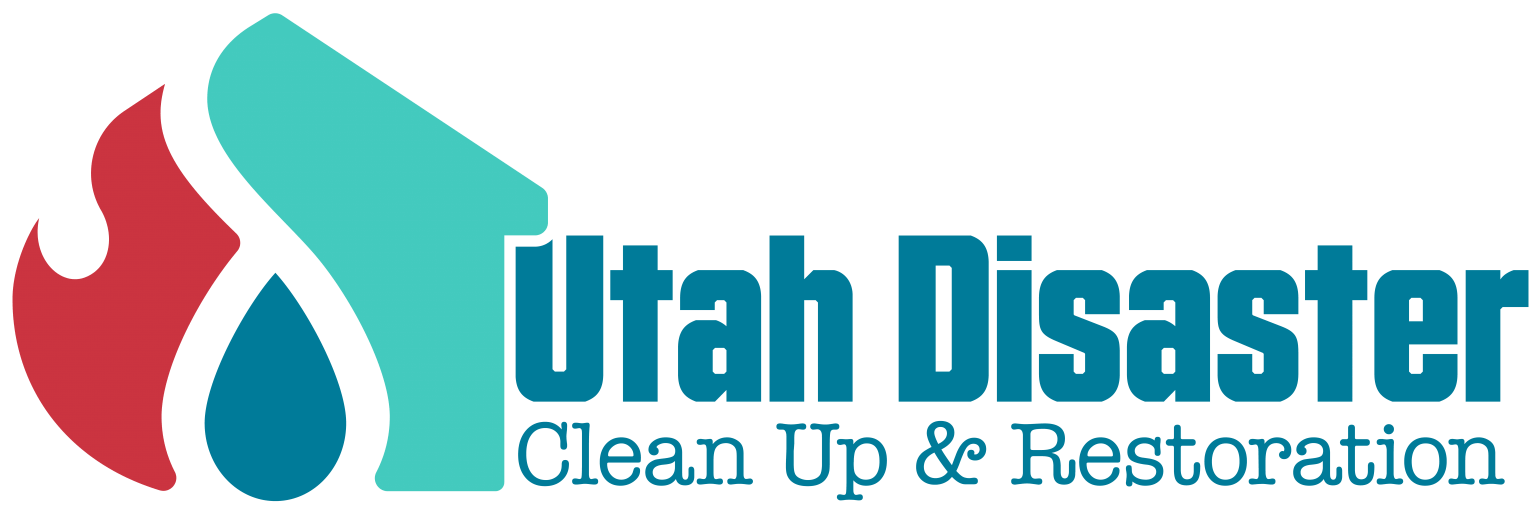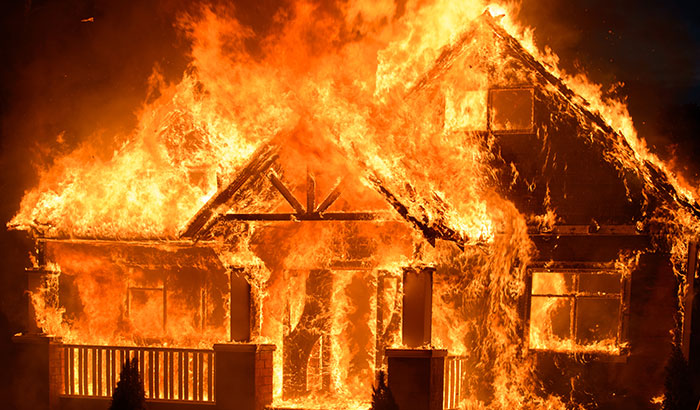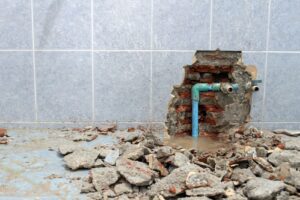A house fire is a terrifying experience for everyone involved, but while you may just want to rest after it’s out, there are essential things to do.
The most important thing to do after a house fire, as soon as you and everyone else are out of the house, is to get checked for smoke inhalation and other injuries. Then you can move your attention to the next day, the next week, and start making long-term plans.
This article will discuss some critical things to do once you’ve accounted for everyone present during the fire. Much of this may seem trivial after such a life-changing event, but these steps will help you along the way to put your life back together and recover from a house fire.
Step 1: Get Medical Attention
We reiterate how important this is. Even if you avoided getting burned and other injuries that commonly happen in a house fire, even if you feel fine, get checked out by a doctor.
Smoke inhalation symptoms often include coughing, red and stinging eyes, shortness of breath, hoarseness, and headache. Mental symptoms may include confusion, fainting, seizures, and even coma. These symptoms may not seem severe initially, but they can quickly go downhill and lead to cardiac arrest. Smoke inhalation is the number one way fires kill.
Get in touch with paramedics on the scene if you inhaled any amount of smoke. People have died on the way to the hospital in non-emergency vehicles because symptoms advanced so quickly.
Step 2: Notify Your Insurance Company
First off: Most homeowner’s insurance policies do cover accidental fires. This is true whether it was human error or a faulty appliance.
It’s important to know exactly what your policy will cover. Typically, homeowner’s insurance covers the following:
- Repairing or rebuilding your home
- Damage to other structures like a detached garage
- Damage to personal property
- Living expenses caused by the loss of use of your home
- Personal liability — covers legal defense if you are held responsible for another’s injury or loss of property.
Even if your policy covers all these things, know how much it will pay. It may pay for replacement costs for buildings and items lost in the fire, or it may pay actual cash value (the price of items minus depreciation). It may only cover a certain number of nights in a hotel. You don’t want to be surprised by these things after a house fire.
Step 3: Cooperate with Investigations
Immediately after a fire is extinguished, the fire investigator will look into the cause of the fire to determine if it was equipment failure like a faulty wire, human error like an unattended flame, or arson. Along with the physical investigation, they may want to talk to you and your family to find out what you know that may help explain the fire’s origin.
During highly stressful times, especially if you or a family member was seriously injured, this may feel like an imposition or even offensive if it seems like they suspect arson. Investigators know most fires are accidents. It’s their job to discover the cause of the fire to avoid similar circumstances in the future.
It’s best to cooperate with the investigation, knowing it’s not personal, to avoid adding to your stress. Your homeowner’s insurance will need to know the results of this investigation. Ideally, knowing what caused the blaze will give you closure as well.
Step 4: Contact a Fire Restoration Service
After a house fire, there could be many lingering dangers, including toxic smoke residue, damaged electrical and gas systems, and structural damage. Fire damage restoration professionals should be able to assess the damage and begin the process of making it safe enough for you to re-enter your home.
In addition to fire damage, if the fire department uses water to extinguish the flames, you’ll likely have water damage, so it’s essential to contact a company that can handle both. Recovery may be a long process, but it needs to start as soon as professionals can safely enter.
Step 5: Get a Place to Stay for the Next Few Nights
Even if the fire didn’t enter your bedrooms, you must stay out of your home until professionals can complete the work of removing smoke residue. Many toxic chemicals can remain after a house fire, including carbon monoxide, which can continue to emanate until it’s removed.
It may take a few days before professionals can fully understand the condition of your home, and you’ll know if it will be a matter of days, weeks, or longer before you know if and when you can return.
Step 6: Find Out What’s Salvageable
Again, the initial cleanup stage may take quite some time, and it might be days before you can re-enter the home to assess what you can salvage. The house itself may be salvageable after cleaning and repairs, or it may be condemned. Then you’ll need to decide on the next step.
In addition to your home, you’ll have to sort through all your belongings, including clothes, pictures, books, children’s toys, etc., to know what is salvageable. Everything will need to be cleaned to remove smoke residue and possibly moisture. Clothes, walls, and wet carpets may need to be treated for mold. It will be up to you to determine what’s worth keeping.
Step 7: Seek Counseling
A house fire is a traumatic event. You may think that when the moment is past, the fear and emotional pain diminish on their own, but for many people, that isn’t the case. It’s important to acknowledge and deal with the trauma you legitimately experienced during the fire and the stress of dealing with the aftermath.
Many counselors specialize in recovery from traumatic experiences, and many health insurance plans cover at least a certain number of visits. For some people, group therapy may be helpful as well. Find out what’s available in your area and talk through your experience.
Let Utah Disaster Clean Up & Restoration Help Restore Your Peace After a House Fire
We know that immediately following a fire, things can seem chaotic. But you should know it won’t stay that way, especially if you bring in the right people to help put things back together.
At Utah Disaster Clean Up & Restoration, we are experts in house fire restoration and resulting water damage and mold conditions. When things are looking their worst for you, contact us for help.



